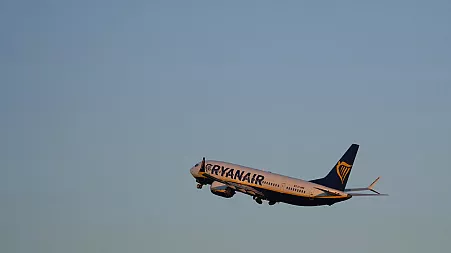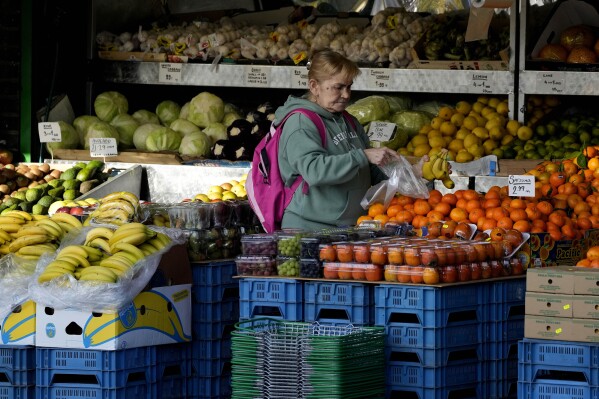Inflation fell less than expected in March, raising concerns over how quickly the Bank of England will be able to start cutting interest rates later this year.
Consumer prices rose 3.2pc in the year to March, figures from the Office for National Statistics (ONS) show, down from 3.4pc the previous month.
While this was the lowest annual rate for two and a half years, the figure was higher than the 3.1pc predicted by economists.
This has since pushed traders to delay expectations for when the Bank of England will deliver its first rate cut, as they are now pricing in a reduction in November rather than September.
The headline rate has remained at a 16-year high of 5.25pc since August last year.
Grant Fitzner, chief economist at the ONS, said: “Once again, food prices were the main reason for the fall, with prices rising by less than we saw a year ago. Similarly to last month, we saw a partial offset from rising fuel prices.”
The jump in fuel prices is likely to continue further this month amid rising tensions in the Middle East, particularly after Iran’s recent attack on Israel.
Wednesday’s ONS figures also revealed that the closely watched core inflation measure, which strips out volatile components like food and energy, rose by 4.2pc in March – lower than February’s 4.5pc.
This was alongside a slight easing in services inflation, which fell narrowly from 6.1pc to 6pc.
Yael Selfin at KPMG warned that while inflation could soon return to the Bank’s 2pc target, risks remain high.
Ms Selfin said: “The overall outlook for inflation remains broadly positive, however there are several risks which could cause a setback.
“Oil prices have rallied over the past month which has led to an increase in prices at the pump for consumers. Also, the hike in the National Living Wage could potentially contribute to persistence in services inflation which remains elevated.”
A drop in the energy cap in April has been widely expected to bring inflation below 2pc next month, although the Bank’s rate-setters have previously warned it may not be enough to instantly lower rates.
Chancellor Jeremy Hunt said the latest fall in inflation was a sign that “the plan is working”.
Mr Hunt said: “The plan is working: inflation is falling faster than expected, down from over 11pc to 3.2pc, the lowest level in nearly two and a half years, helping people’s money go further.”
Disclaimer: The copyright of this article belongs to the original author. Reposting this article is solely for the purpose of information dissemination and does not constitute any investment advice. If there is any infringement, please contact us immediately. We will make corrections or deletions as necessary. Thank you.



